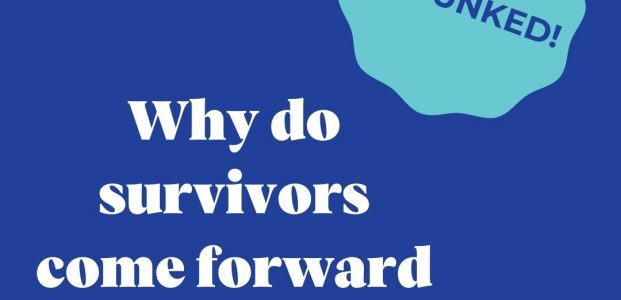CW: This article discusses sexual assault and abuse which some people may find distressing. If you need to reach out for assistance, please contact 1800 RESPECT
In the media and in my everyday life, I’m seeing too many survivors of sexual assault being silenced. Historical sexual assault allegations should be taken seriously and survivors should be treated with respect. Instead, all too often I see people belittling and distrusting survivors who find the strength to come forward years later to accuse their perpetrators. Put most simply, sexual assault is trauma. Victims of sexual assault can experience a number of effects including denial, guilt, blame, isolation and low self-esteem, all of which are signs of acute stress disorder (ASD) and post-traumatic stress disorder (PTSD). Confronting this experience can be extremely challenging for survivors, many can take months, years and even decades to recognise that a sexual assault occurred. This is due to a number of reasons including;
Psychological
Psychologist Jim Hopper explains that trauma has a massive impact on memory. Some victims can repress or bury their memory of a traumatic experience so deeply, that they simply can’t recall the event at all. Some victims may go their entire lives without remembering a traumatic event, and others may only have partial memories of what happened. Many victims of sexual assault also experience what is known as fragmented memories, where small components of a traumatic memory are brought back, or triggered, by something to do with the experience, for example, a part of the body being touched or even a song playing in the background. This fragment can trigger a response where the survivor can suddenly recall the sexual assault which may have happened years ago.
Societal
Unfortunately we live in a world where victim blaming and slut shaming is still rampant. Too many people still believe that victims are asking for attention, or trying to get money or fame by accusing perpetrators, which is blatantly untrue. Brave survivors who have shared their stories in the past have faced a litany of abuse and bullying online and in person. Having to deal with the experience itself is hard enough, let alone the aftermath that many survivors face. Some survivors eventually gain the strength to come forward, and they should be respected and admired for doing so. What we aim to do at Empowered Together is reshape the way that people think about consent and sexual assault, and encourage people to believe victims which ultimately leads to the elimination of sexual assault on the whole.
Acceptance
Coming to terms with a sexual assault is a difficult journey. So many survivors have been abused by someone they know and love, such as a family member, friend or partner. It can be challenging to come to terms with the fact that someone you hold close to you could have caused you harm, many people do not want to accept this. A lot of people also don’t always understand a situation to be sexual assault until they learn about it later in life. Unfortunately, many people still believe you cannot be sexually assaulted by a romantic partner, which is untrue. Many people don’t understand that being coerced into sexual acts is considered sexual assault, many don’t understand that unconsented removal of a condom is considered sexual assault. Sadly, the list goes on. People may not realise the seriousness of a situation until they have had time to process and react to it. A lack of understanding and education of what sexual assault is a major component of historical sexual assault allegations.
Dealing with sexual assault trauma is already so difficult, and is only made worse when survivors aren’t receiving support. Historical rape and sexual assault allegations come forward years later because of their personal struggles with trauma, as well as the fact that so many diminish and criticise survivors stories, making it hard for them to feel safe. Time does not erase the trauma for victims. Believe survivors. Victims of sexual assault need support, and they deserve the right to tell their story and seek justice when they feel safe and comfortable to do so.

